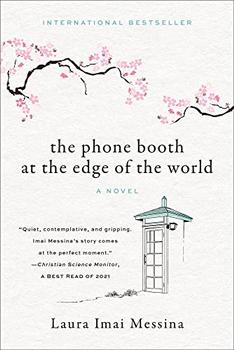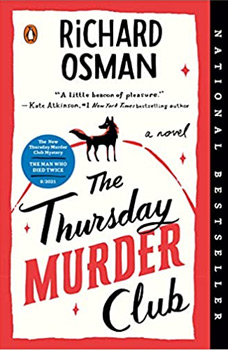Summary | Excerpt | Reviews | Beyond the book | Read-Alikes | Genres & Themes | Author Bio

Mourning the recent death of his wife Alicia, famed singer-songwriter Alfred Busi is wrested from sleep one evening by foragers feasting on the contents of the bins outside his sea view villa. While Busi usually ignores this frequent occurrence, on this night he has an impulse to investigate further. Stepping outside into the balmy darkness armed solely with a stick, the elderly widower is attacked by a shadowy figure and left bloody from bites and scratches. In the confusion, Busi cannot work out whether the feral aggressor is man or animal.
The incident quickly becomes fodder for neighborhood gossip and, sensing a storm brewing, reporters twist Busi's uncertainty about his attacker's identity for sensational effect. The local homeless population, who appear to be a cross between gypsies and slum-dwellers and occupy the wilderness on the outskirts of town, are compared to vicious apes and Neanderthals, prepared to attack anyone to satisfy their base appetites. Spurred on by Busi's greedy property developer nephew Joseph, the town's more privileged residents go on a crusade to get rid of the "feral vagabonds and starvelings" once and for all. Meanwhile, shook up Busi finds solace in his alluring sister-in-law Terina as he ponders ending his dwindling musical career with one final performance.
While The Melody's inciting incident has all the ingredients for a bickering small-town drama in the vein of Joanne Harris' Chocolat, this novel is a much more tranquil affair. As the plot brews in the background, Crace allows his central protagonist ample time to reflect and reminisce. In the aftermath of his attack, Busi meditates on the realities of a socio-economic climate that treats its poorer citizens like savage beasts that need culling. He experiences fevered dreams of the town being overrun by animals, of boars dining in the local restaurants. This all fosters a sense of compassion within Busi towards his mysterious attacker, whom he subsequently wishes to identify and help.
With such a proclivity for introspection, The Melody has the illusory effect of a siesta in the afternoon sunshine. That's not to say the novel is tedious, but rather that it possesses a hazy quality that invites the reader to fall into its dream-like prose and embrace its ambiguities. For example, the seaside town's basilica and cupola buildings have a distinctively Mediterranean aesthetic, but the setting is never made explicit. Furthermore, Busi appears to be a singer-songwriter in the lyrically-driven chanson tradition (see Beyond the Book) popular in Europe in the late 19th and early 20th centuries. However, the narrative could just as easily be happening during the 1960s or in the present day. To further shroud specifics, Crace's narrator is initially unnamed and his relationship to Busi is unclear until the end of the novel, but he is privy to all the town's gossip and secrets, and he treats the reader like a trusted confidante.
Greed and poverty are the key themes of The Melody, and Crace's narrative has a moral bent. With the plight of migrants and refugees a daily presence in the news, one can't help but feel that for all its quaint coastal town charm, this is a novel born in anger at the mistreatment of the underprivileged.
![]() This review was originally published in The BookBrowse Review in August 2018, and has been updated for the
July 2019 edition.
Click here to go to this issue.
This review was originally published in The BookBrowse Review in August 2018, and has been updated for the
July 2019 edition.
Click here to go to this issue.

If you liked The Melody, try these:

The Phone Booth at the Edge of the World
by Laura Imai Messina
Published 2022
The international bestselling novel sold in 21 countries, about grief, mourning, and the joy of survival, inspired by a real phone booth in Japan with its disconnected "wind" phone, a place of pilgrimage and solace since the 2011 tsunami.

by Richard Osman
Published 2021
Four septuagenarians with a few tricks up their sleeves
A female cop with her first big case
A brutal murder
Welcome to...
THE THURSDAY MURDER CLUB
Your guide toexceptional books
BookBrowse seeks out and recommends the best in contemporary fiction and nonfiction—books that not only engage and entertain but also deepen our understanding of ourselves and the world around us.